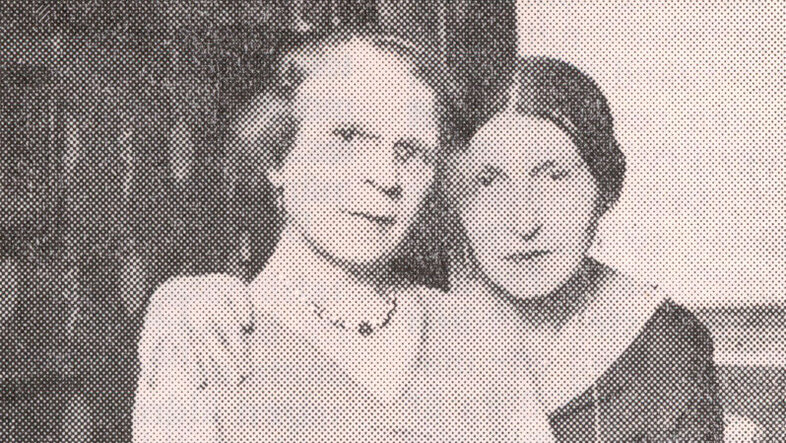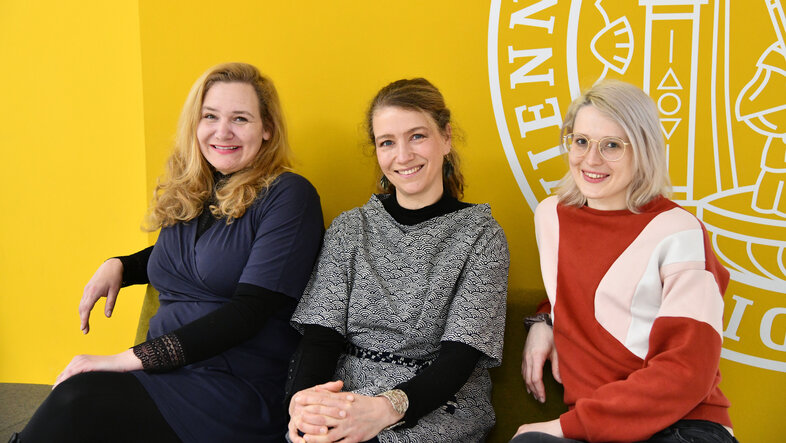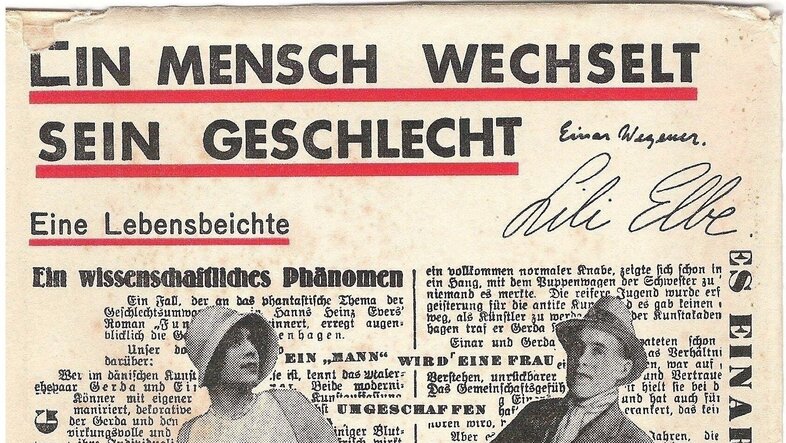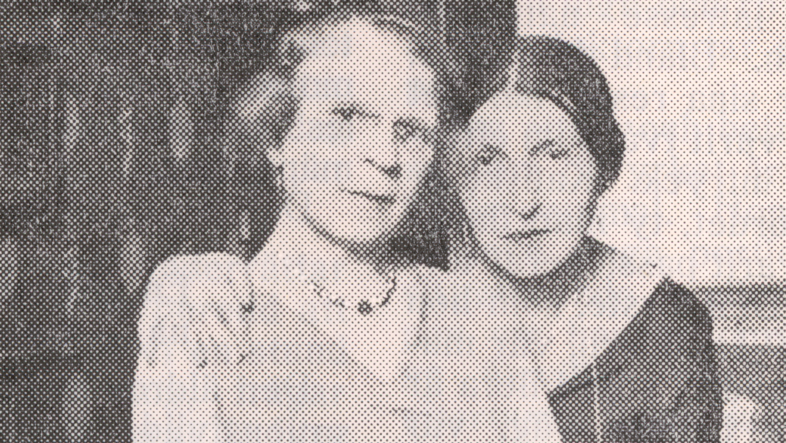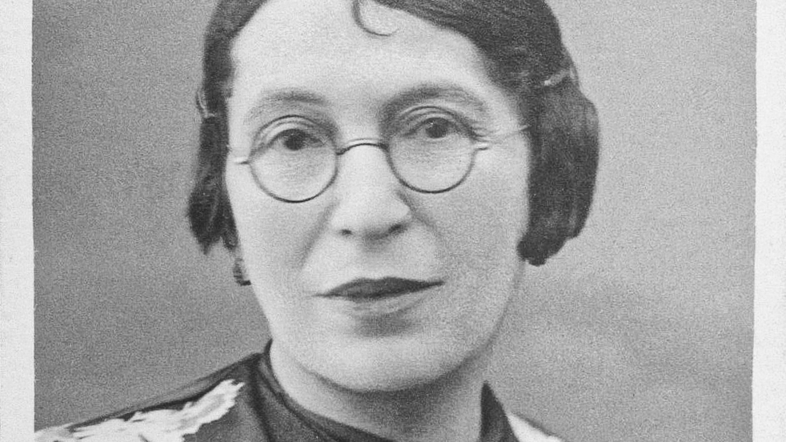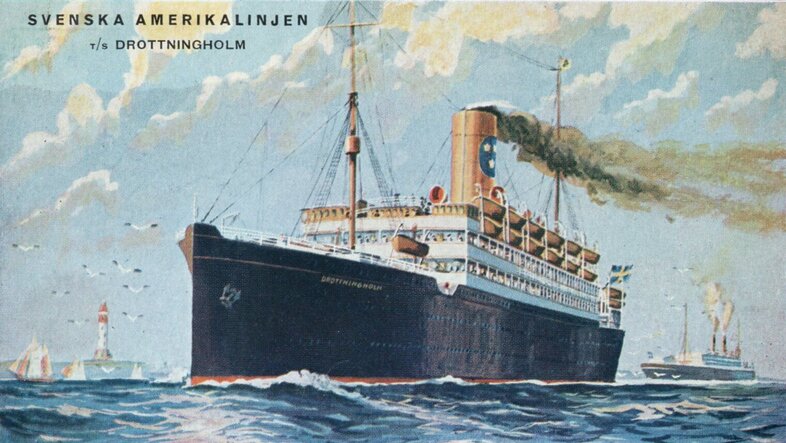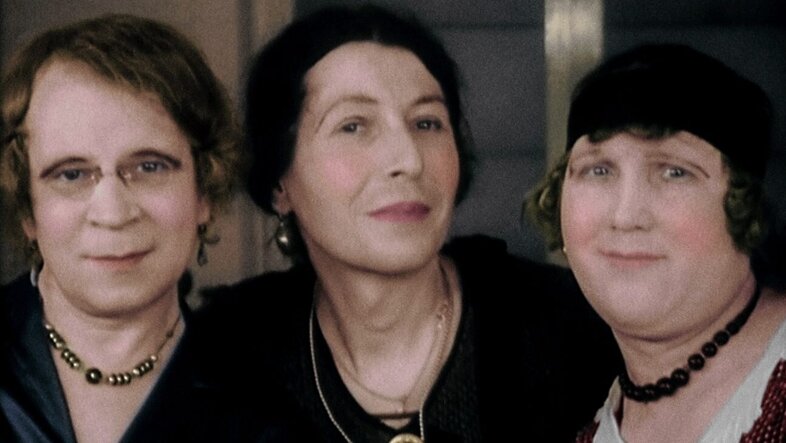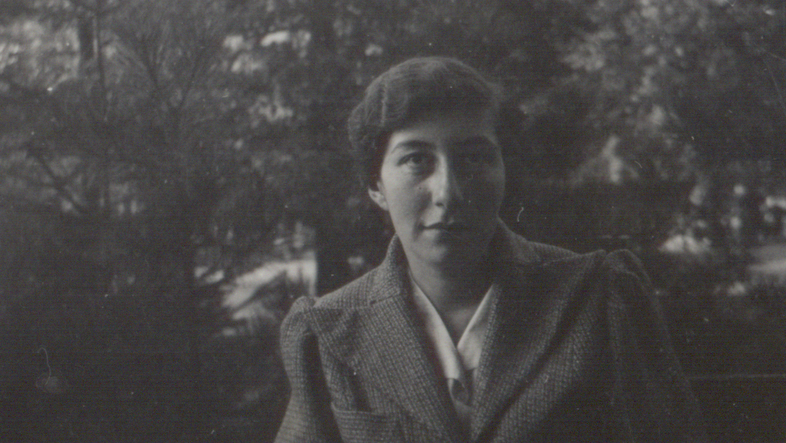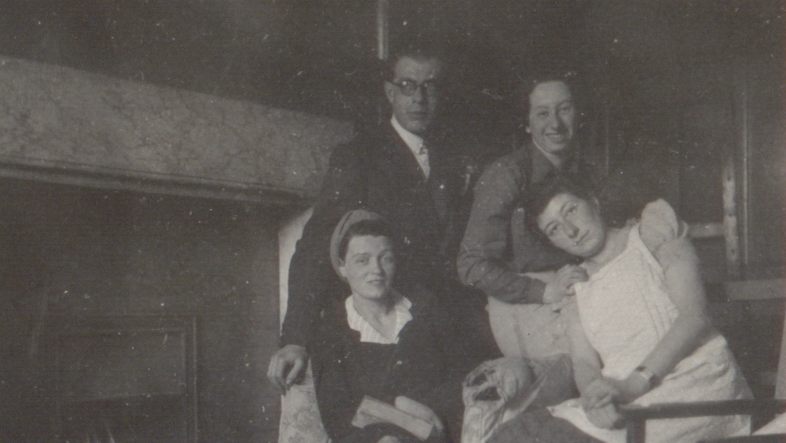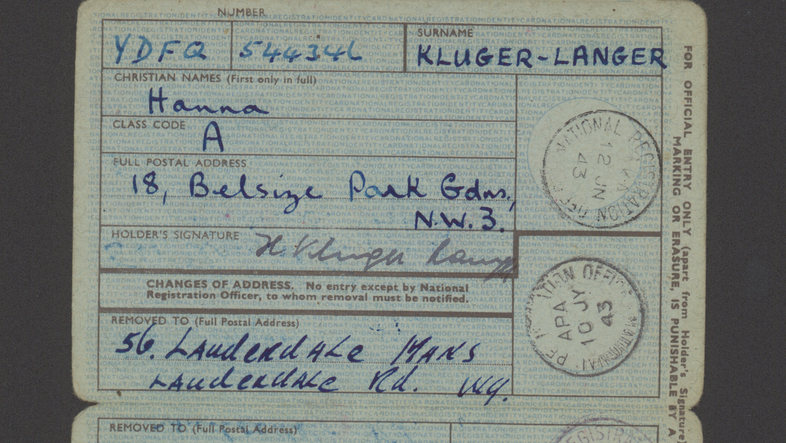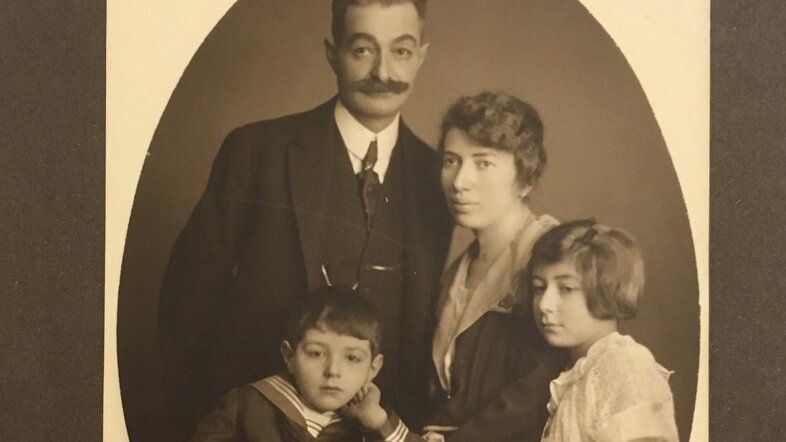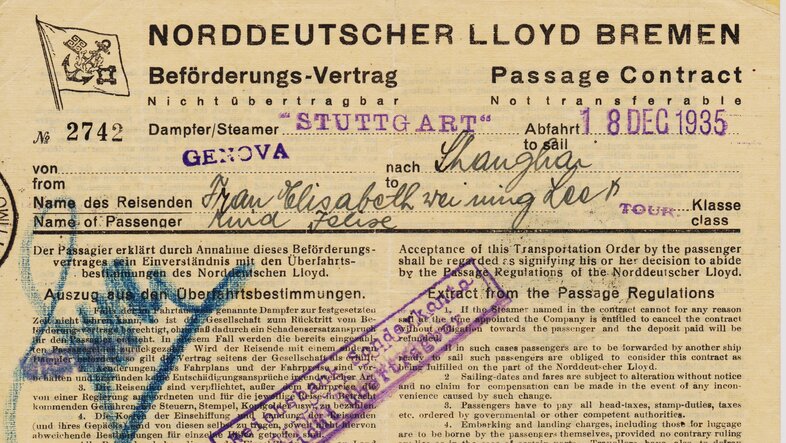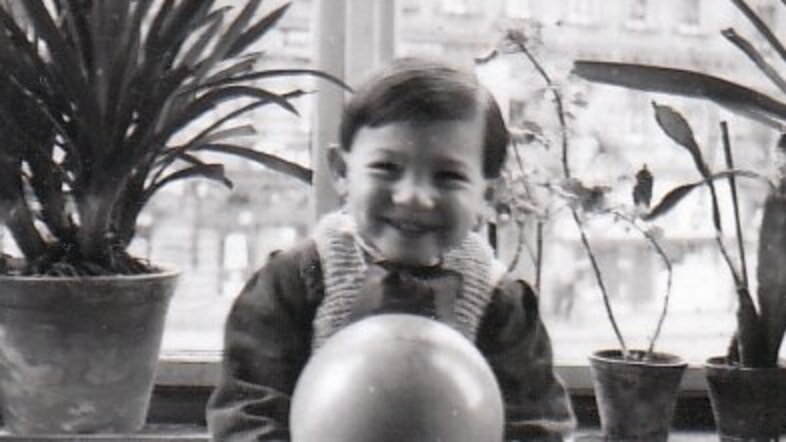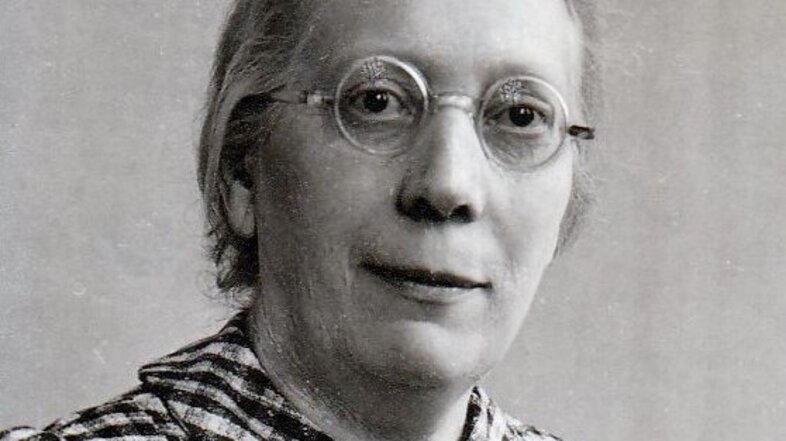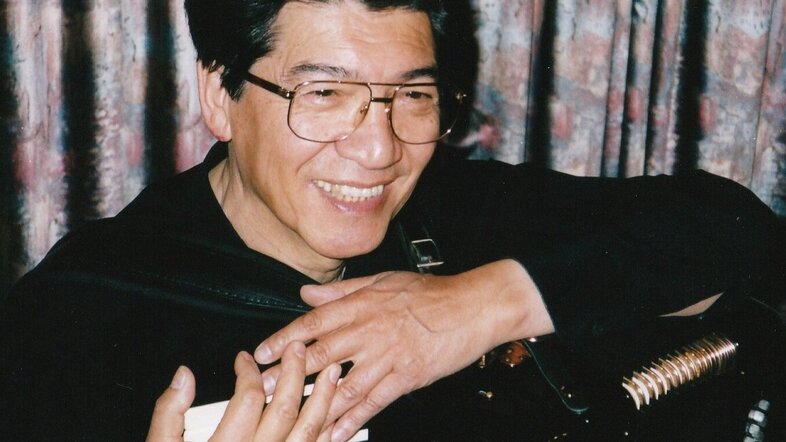World War II refugees: Untold stories of flight
As a Jewish transwoman in National Socialist Germany, Charlotte Charlaque had to do one thing above all else: leave the country as fast as possible. But we would only find out about her turbulent escape much later. "Most well-known stories of flight from the Holocaust have been told by intellectuals," says Paula Wojcik, "But what about all the stories that have never been recorded or that were simply not considered important in the immediate post-war period?" As part of their current project Remapping Refugee Stories, Paula Wojcik and her team at the Department of European and Comparative Literature and Language Studies collect and analyse previously neglected biographies from the period between 1933 and 1953 – including biographies by women, queer persons, people of colour or people with Romani background.
"We are working with stories of people who were persecuted for various reasons and who often lacked representation also in the recent past," says the project leader. "For example, the experiences of marginalised groups during the Holocaust were investigated only rarely. In the case of people with Romani background, the examination of their experiences was even considered a taboo for a long time." To ensure that both academic research and the public can make use of these experiences as well, the Vienna team, co-led by Werner Nell from Queen's University (Canada), cooperates with international experts from the fields of contemporary history, sociology, psychology, education, art and culture.
Paula Wojcik and her team are extracting 20 stories of flight from diary entries, documents – some of which have been translated into English and German for the first time as part of this project – letters and video recordings. These stories are examined more closely in Remapping Refugees and will be made available to the general public on an interactive website from the end of 2024 onwards. The project is funded by the EVZ Foundation, which aims at promoting the remembrance of National Socialist persecution and campaigns for equal dignity and equal rights for all people.
Flight as an open genre
There is no ‘typical’ story of flight, as the literary scholars realised while analysing their sources: Some people leave the continent, others only make it as far as the next village. Some plan their escape for months, while for others the decision to flee is taken by somebody else. Some head for a ‘safe’ haven, in other cases, people flee via several stages, the flight never ends or it ends by returning home. Each of these stories is a story of flight – "even if it might not fulfil the stereotypical notions," says Paula Wojcik.
From the communicative memory ...
Felix Lee’s story of flight is such an ‘atypical’ one: The son of a Viennese Jewish woman and a Chinese composer was able to flee to China with his family before the situation of Jewish people grew increasingly dramatic in Vienna. After arriving in China, his mother had such a hard time dealing with the culture clash that the family finally decided to return to Austrofascist Austria – where they had to hide their Jewish origins and experience the atrocities of the Holocaust. "Felix Lee is one of only a few persons who are still able to tell their story themselves," says Wojcik who has already met the elderly contemporary witness several times.
... to the cultural memory
Soon there will be no Holocaust survivors left to tell their stories. "We are transitioning from a communicative to a cultural memory. Therefore it is important to revive the stories now and find means of communicating them also to younger generations to transfer the knowledge." As part of the project, the researchers are developing teaching material for schools and testing new formats of communicating knowledge – in one, students "designed video games that deal with Nazi injustice based on the stories of flight". Some of these scripts are to be realised in a follow-up project.
Drawing attention to the Holocaust (again and again) is also important in relation to current conflicts and crises, says Wojcik, who has been studying anti-Semitism and National Socialism since the beginning of her academic career: To prevent us from forgetting – forgetting and missing the moment when a society drifts off into a direction that could lead to a totalitarian regime, discrimination and the persecution of people. (hm)
